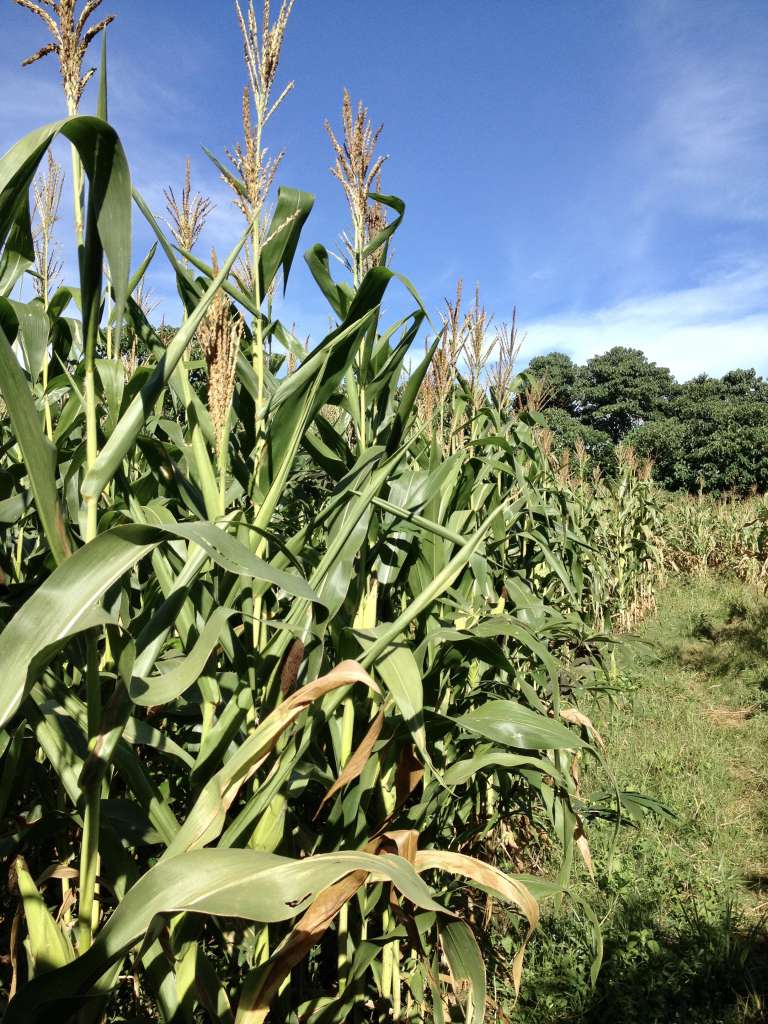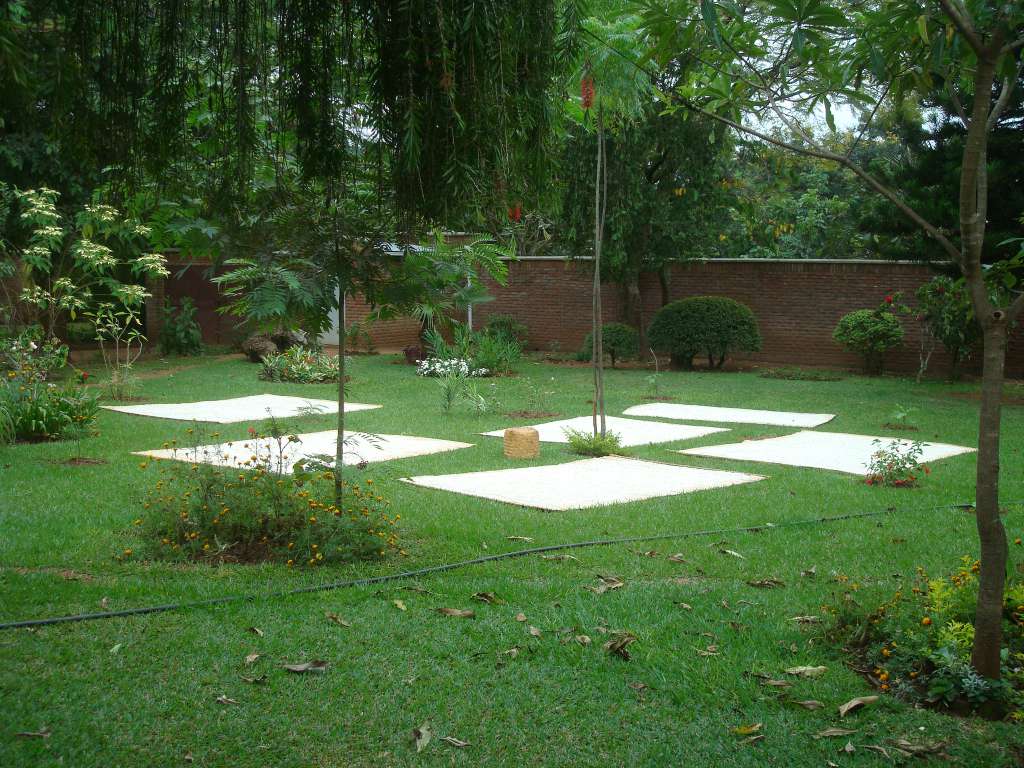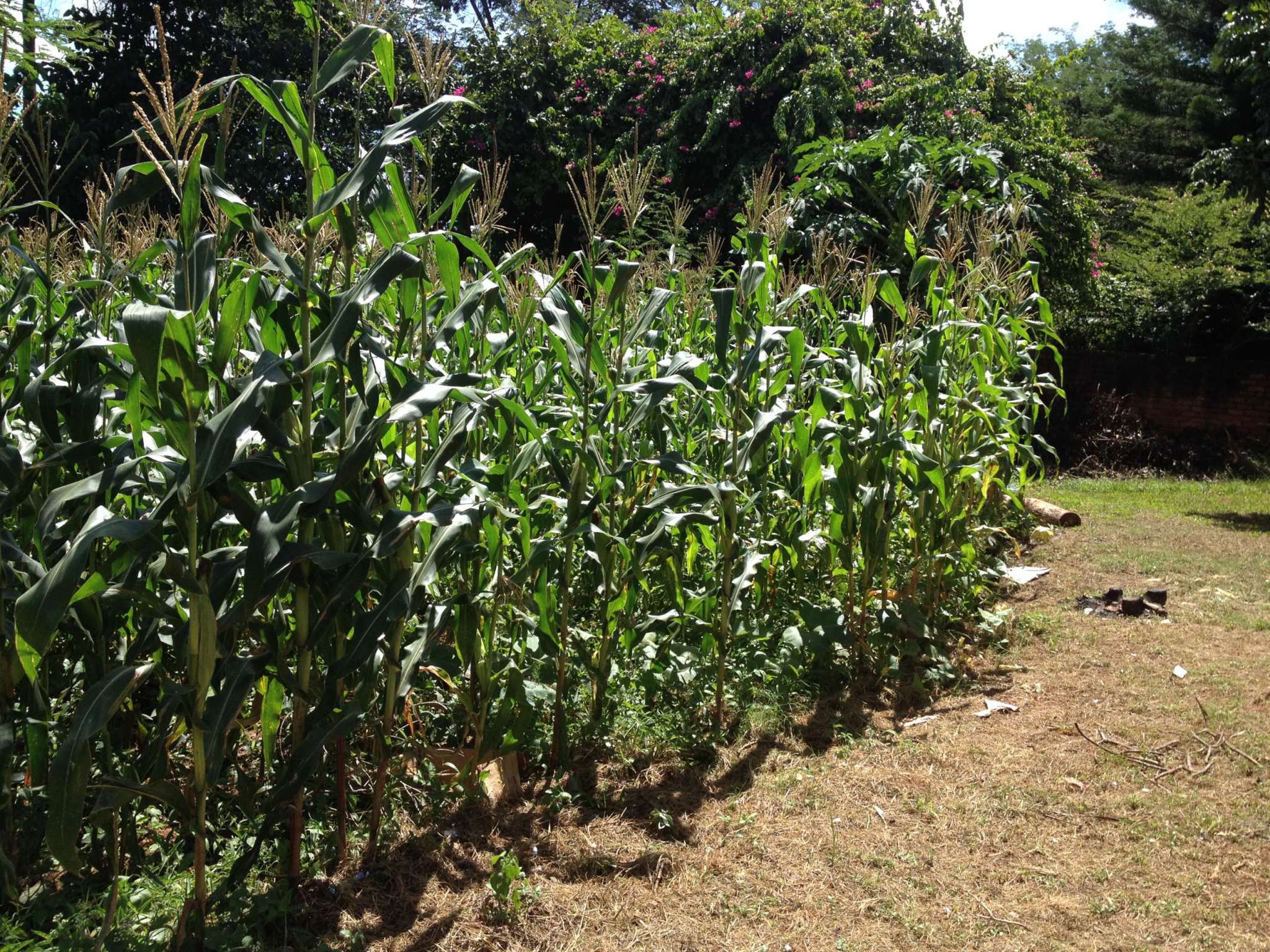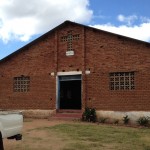Every culture has its own national food. In Ireland we are known for, and genuinely enjoy, potatoes. Even though our national food is not indigenous to this island, for generations we have enjoyed potatoes with every meal, including potato bread for breakfast!

In Malawi you can grow potatoes (called Irish) in Dedza, about 100km south of Lilongwe on the road to Blantyre, but few Malawians would eat potatoes as much as we do here. Instead, on every plate of food, from what is eaten day to day to what is eaten at special occasions, you will find a white substance called nsima. Nsima is made from maize flour, boiled up to form palm sized servings that go with meat, vegetables and relish. See below for a recipe of how to make nsima.
1 cup of ufo for two persons
2¾ cups water to each cup of ufa
Butter or margarine (optional)
Use a wooden spoon to stir nsima. Heat the water in a saucepan until lukewarm (test by letting a drop fall on the back of the hand). Mix a little of the ufa with the lukewarm water, stirring well to make sure there are no lumps. Bring to the boil, stirring well, then lower the heat and let it boil gently for a few minutes. The mixture should look like a thin transparent porridge. Sprinkle the remaining ufa over, a little at a time, stirring continuously to avoid lumps forming, until the desired consistency is reached. Keep stirring until the sima is smooth and well cooked. A little butter or margarine may be stirred in at this stage. Serve in a dish, accompanied by meat, fish or vegetables.
The Malawi Cookbook, 1999, Blantyre: Dzuka Publishing Company Limited
At this time of year you can’t go anywhere in Malawi without seeing fields of green maize with the golden tassels on top (the crown) letting us know that it will soon be harvest time. The lush, green stalks grow to over 6ft in height and produce two cobs of corn. At harvest time (April and May) the cobs are removed from the stalk and the corn kernels picked off and stored in bags. Many families will grow enough maize to feed their family for a whole year. There is always great joy when the harvest is brought home to be stored and prepared for eating.

From time to time families will get the kernels and either pound them with a large, wooden mortar and pestle, or take them to a maize mill to be ground into flour. The flour is called ufa. The flour is then left out in the sun to dry before being stored for cooking later that week.
But 2023 will be different for the vast majority of Malawians. Last week Malawi experienced its worst ever natural disaster as cyclone Freddy returned to southern Malawi for a second time in two weeks and submerged 5 districts under water, impacting 5 million people. This should be the time of great expectation of the harvest, but the maize fields are under water and have no hope of producing a crop. Homes have been destroyed, lives lost, families displaced and a year’s worth of food gone in a matter of minutes. The pictures and videos on social media show the utter devastation of the situation. Currently over 200 have died, but a major international rescue operation, in partnership with the government of Malawi, is underway and many are being brought to safety.
Friends in Malawi, through their church, have started a fund to support those impacted by this cyclone. You can find out more and support the relief effort (co-ordinated locally) by going to the Cyclone Freddy Relief Page and giving whatever you can.
With the devastation and loss of property and crops we must remember with certainty what we are told in Colossians 1:17 – And he is before all things, and in him all things hold together. We seek him and his goodness in this situation.


